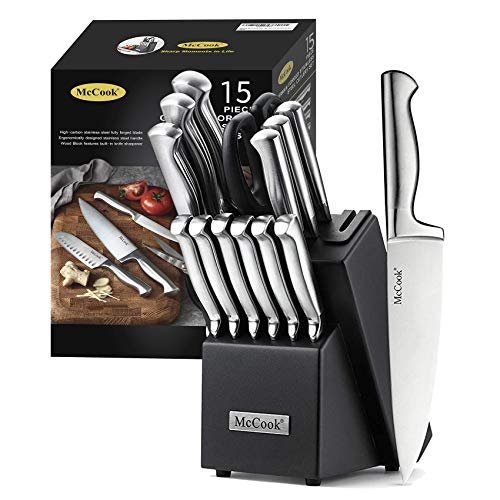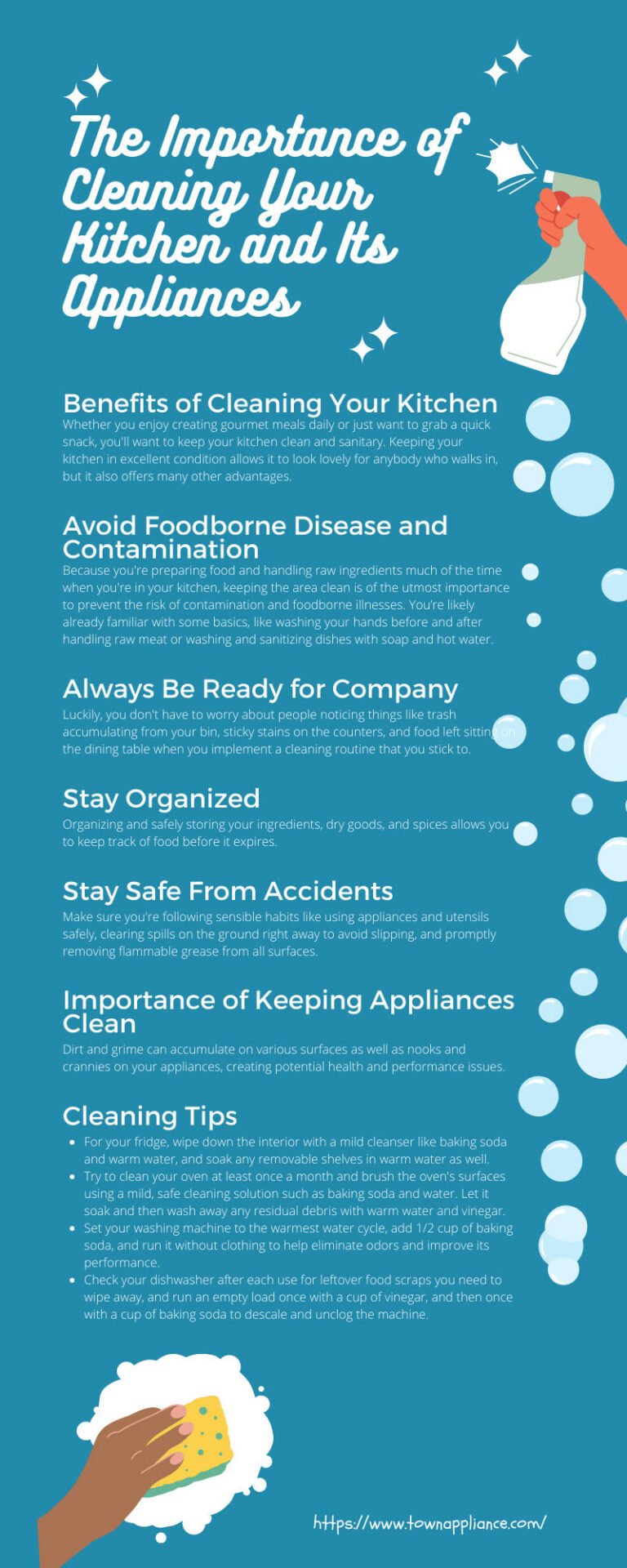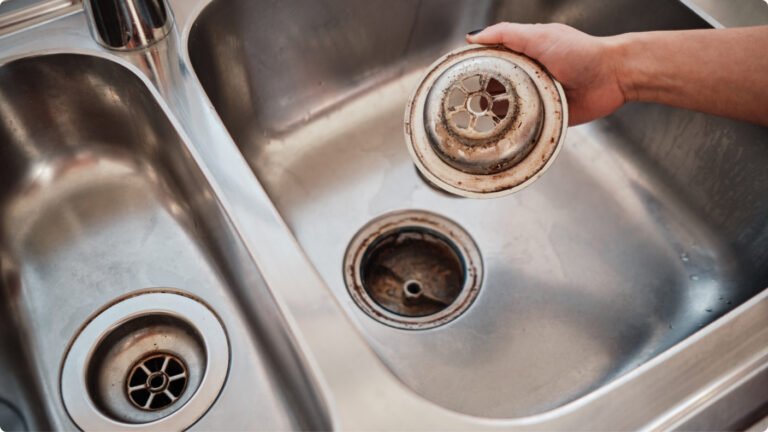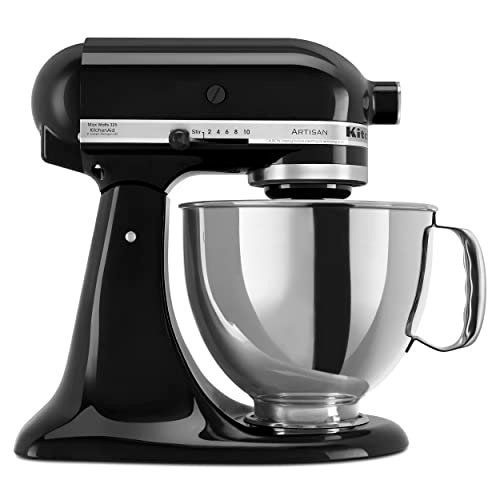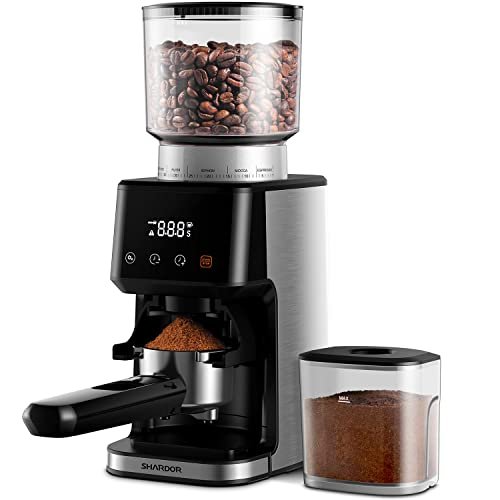What is the Best Drain Cleaner for a Kitchen Sink: Top Picks
Are you tired of dealing with a slow-draining kitchen sink? Clogs and blockages can be a real headache, leaving you frustrated and your kitchen disrupted.
With so many drain cleaners on the market, how do you choose the right one for your kitchen sink? This is where our guide comes in. We’ll unravel the mystery of finding the best drain cleaner that not only clears those stubborn clogs but also keeps your pipes safe and sound.
Stick with us, and you’ll discover the secret to maintaining a free-flowing sink without the fuss. Ready to dive into the world of effective drain cleaning solutions? Let’s get started!
Factors To Consider
Choosing the best drain cleaner for a kitchen sink can be tricky. Various factors affect this decision. Understanding these factors ensures you make the right choice. This section explores key considerations in detail.
Type Of Clog
Different clogs require different solutions. Identify if the clog is due to grease, food, or hair. Each type needs a specific cleaner. For example, enzyme-based cleaners work well on organic matter. Chemical cleaners handle tougher clogs effectively. Recognizing the clog type helps in selecting the right product.
Safety And Environmental Impact
Safety should be a top priority. Some cleaners contain harsh chemicals. These can be harmful if used improperly. Always read labels for safety instructions. Environmentally-friendly options are available. They use natural ingredients, reducing harm to the environment. Choose a product that balances effectiveness and safety.
Ease Of Use
Consider how easy the cleaner is to use. Some require mixing or multiple steps. Others are ready-to-use directly from the bottle. Products with simple instructions save time and effort. An easy-to-use cleaner can make the task less daunting. Look for user-friendly products for a hassle-free experience.
Chemical Drain Cleaners
Chemical drain cleaners can effectively tackle tough clogs in kitchen sinks. They work by breaking down grease, food particles, and other debris. These cleaners are popular due to their fast action. Many homeowners find them convenient when a quick fix is needed. However, it’s essential to understand their advantages and drawbacks.
Pros And Cons
Chemical drain cleaners offer several benefits. They clear clogs quickly, saving time. They are readily available in most stores. Many formulas are easy to use, requiring minimal effort. On the downside, they contain harsh chemicals. These can harm pipes and the environment. Overuse may lead to damage. Users must follow instructions carefully to avoid mishaps.
Top Chemical Picks
Some chemical drain cleaners stand out for their effectiveness. Drano Max Gel is a popular choice. It dissolves tough clogs quickly. Liquid-Plumr Pro-Strength offers a strong formula for stubborn blockages. It’s effective on hair and grease clogs. Zep Drain Defense also receives praise for its preventive use. It helps keep pipes clear over time. Each product has unique features. Choose based on your specific needs and preferences.
Enzymatic Drain Cleaners
When it comes to cleaning your kitchen sink, you want a solution that’s not just effective but also safe for your plumbing and the environment. Enter enzymatic drain cleaners—a natural and powerful option that could be the answer to your clogging woes. These cleaners use enzymes to break down organic material, like food scraps and grease, transforming them into water and carbon dioxide. It’s a fascinating process that combines science with practicality, potentially saving you from the hassle of calling a plumber.
Benefits Of Enzymatic Solutions
Enzymatic drain cleaners offer a unique approach to clearing clogs. They work gradually, digesting the buildup over time, which means they’re less aggressive on your pipes compared to chemical cleaners.
They are generally non-toxic and biodegradable, making them a safer choice for households with kids and pets. You won’t have to worry about harsh fumes or accidental skin contact.
Moreover, enzymatic solutions can even help prevent future clogs. By continuously breaking down organic matter, they keep your pipes cleaner for longer. Isn’t it nice to think about fewer sink blockages in the future?
Top Enzymatic Picks
Looking for the best enzymatic drain cleaner? Bio-Clean is a favorite among homeowners. It uses a blend of natural bacteria and enzymes to tackle sink clogs effectively.
Another great choice is Green Gobbler. This product is known for its ability to break down grease and food debris, keeping your kitchen sink flowing smoothly.
Roebic K-67 is also worth considering. It’s specifically formulated for household drains and promises to tackle even the toughest clogs without damaging your pipes.
Have you tried any of these cleaners? Or perhaps you have another favorite? Share your experience and tips, and let’s keep the kitchen sink drama at bay!
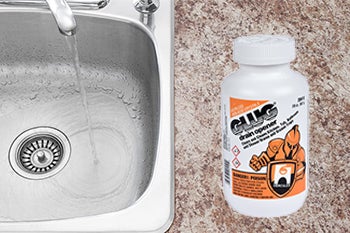
Credit: www.oatey.com
Homemade Solutions
Discover effective homemade solutions for a clogged kitchen sink. Baking soda and vinegar make a powerful combination. Pour hot water after for the best results. This natural method is safe and affordable. Keep your pipes clean without harsh chemicals. Perfect for households seeking eco-friendly options.
If your kitchen sink is clogged, homemade solutions might be the answer. They use common household items. These solutions are eco-friendly and budget-friendly. You avoid harsh chemicals. Let’s explore the ingredients and their benefits.Common Ingredients
Vinegar and baking soda are popular choices. They react together. This reaction can break down clogs. Salt is another useful ingredient. It helps scrub the pipes. Lemon juice adds a fresh scent. It also helps dissolve grease. These ingredients are easy to find.Effectiveness And Safety
These homemade solutions are generally safe. They don’t harm your pipes. But, they may not work for severe clogs. For minor blockages, they are quite effective. Using them regularly can prevent future clogs. Always use hot water after the solution. It helps flush away debris. Remember, safety first. Wear gloves to protect your hands.Mechanical Cleaning Tools
Mechanical cleaning tools are essential for stubborn kitchen sink clogs. These tools offer a physical way to remove blockages. They are effective and often reusable. Perfect for those who want a chemical-free solution. These tools can handle large obstructions that liquids cannot.
Types Of Tools
Mechanical options include plungers and drain snakes. Plungers are common and easy to use. They create suction to dislodge clogs. Drain snakes are flexible and reach deep into pipes. They can twist and turn, reaching blockages far down. Each tool has its own strengths.
When To Use Mechanical Options
Use mechanical tools for severe clogs. If water drains slowly, try a plunger first. If the plunger fails, a drain snake may be necessary. These tools are ideal for large food particles or hair. They are also useful when chemical cleaners are ineffective. Mechanical options offer immediate results without harsh chemicals.
Preventive Measures
Choosing the best drain cleaner for a kitchen sink involves considering safety and effectiveness. Opt for enzymatic cleaners to maintain pipes without harsh chemicals. Regular use helps prevent clogs and keeps your sink flowing smoothly.
Preventive Measures The best drain cleaner for your kitchen sink might not be a cleaner at all. Prevention is often more effective than any chemical solution. Imagine a scenario where you never have to deal with a clogged sink. Sounds appealing, right? Implementing preventive measures can help you maintain a free-flowing drain and save you from the hassle of emergency plumbing calls.Regular Maintenance Tips
Keeping your kitchen sink in tip-top shape doesn’t require a degree in plumbing. Simple habits can make all the difference. Start by pouring boiling water down the drain once a week. This helps break down grease before it becomes a problem. Consider using a drain strainer. It’s a small investment that can prevent food particles from sneaking into your pipes. You might also want to create a monthly routine of using baking soda and vinegar. This duo can help flush out potential build-up naturally.Avoiding Common Mistakes
Are you guilty of treating your kitchen sink like a trash can? Tossing food scraps and oil down the drain is a recipe for disaster. These items don’t dissolve easily and can lead to blockages. Next time you’re tempted to rinse that plate of leftovers, stop and think. Another common mistake is using harsh chemical cleaners too frequently. While they might seem effective, they can damage pipes over time. Opt for gentler solutions whenever possible. Also, resist the urge to forcefully plunge your sink. It might push the clog further down, complicating the problem. Taking these preventive steps can be straightforward and hassle-free. What other tips have worked for you?Choosing The Right Option
Choosing the right drain cleaner for your kitchen sink can be tricky. There are several factors to consider. You want a product that effectively clears blockages. Yet, it should also be safe for your pipes. The best choice often depends on your specific needs and budget. Let’s explore how to make the right choice.
Assessing Your Needs
First, identify the problem with your sink. Is it a minor clog or a major blockage? For minor clogs, a gentle cleaner might work. For tougher clogs, a stronger option might be needed. Also, consider if you have metal or PVC pipes. Some cleaners can harm certain materials. Understanding the root of the problem helps in choosing the right cleaner.
Balancing Cost And Effectiveness
Cost is another important factor. Some drain cleaners are budget-friendly. Others might be more expensive but offer better results. It’s essential to balance cost and effectiveness. A cheaper option might save money now. But it could lead to more problems later. Investing in a quality cleaner can save you from frequent clogs.
Read product reviews to gauge effectiveness. People often share honest experiences. This helps in making an informed decision. Choose a product that fits your budget and meets your needs.
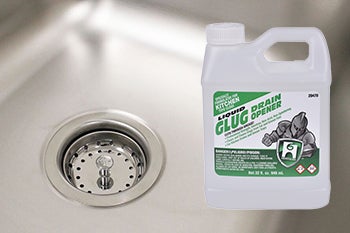
Credit: www.oatey.com
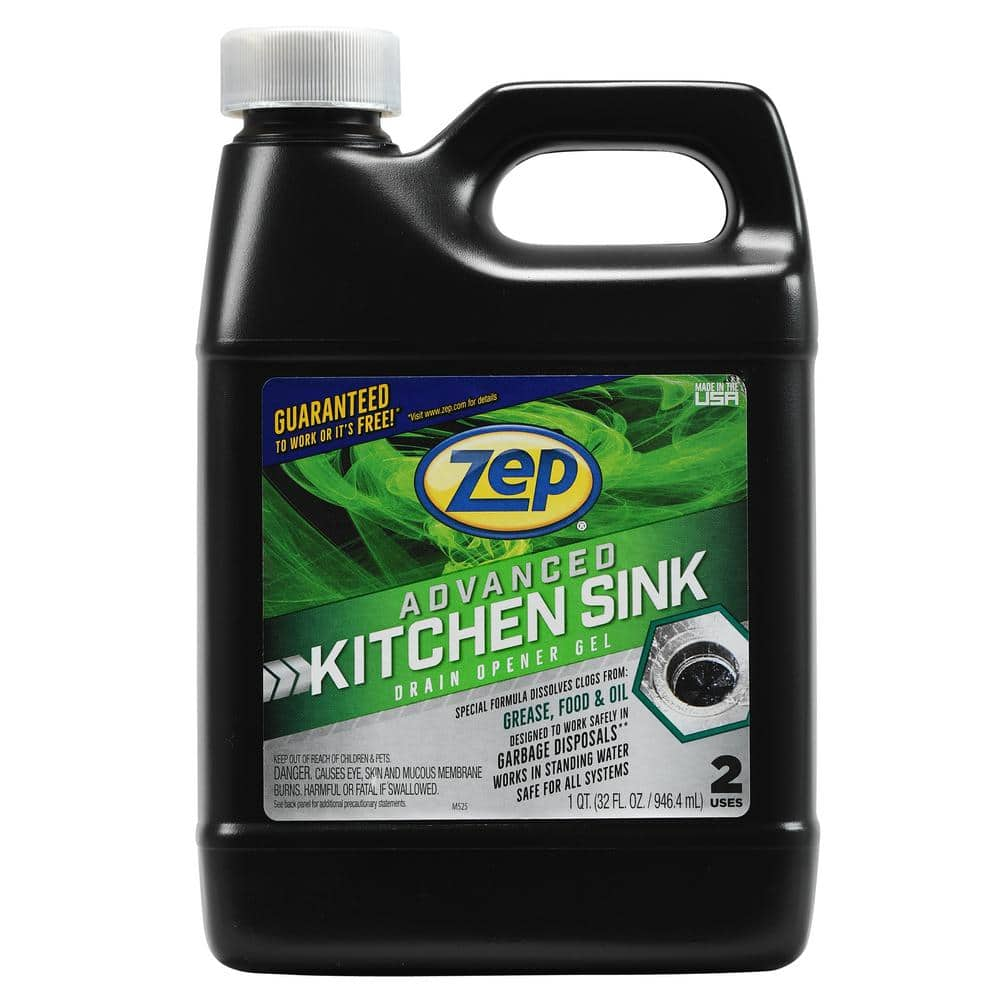
Credit: www.homedepot.com
Frequently Asked Questions
What Should I Use To Clean My Kitchen Sink Drain?
Use baking soda and vinegar to clean your kitchen sink drain. Pour baking soda, then vinegar, into the drain. Let it fizz for 10 minutes. Rinse with hot water. This method effectively removes grime and odors. Repeat monthly to maintain a clean drain.
What Do Plumbers Recommend To Unclog Drains?
Plumbers often recommend using a mix of baking soda and vinegar to unclog drains. Pour boiling water after to help clear residue. For stubborn clogs, a plumber’s snake or plunger might be necessary. Regular maintenance can prevent future blockages, ensuring smooth drainage and reducing the need for professional intervention.
Is Drano Better Than Baking Soda And Vinegar?
Drano is generally more effective for tough clogs due to its chemical strength. Baking soda and vinegar work well for mild clogs and are eco-friendly. Choose based on clog severity and environmental preference. Always follow safety instructions when using chemical drain cleaners.
Why Do Plumbers Say To Not Use Drano?
Plumbers advise against using Drano because it can damage pipes and harm septic systems. Its chemical reactions may worsen clogs. Regular usage can lead to expensive repairs. Opt for safer, natural solutions or professional help to clear blockages effectively and maintain plumbing health.
How Often Should I Clean My Kitchen Sink Drain?
Cleaning your kitchen sink drain monthly helps prevent clogs and odors. Regular maintenance keeps it running smoothly.
Conclusion
Choosing the right drain cleaner is essential for a clean kitchen sink. Consider eco-friendly options to protect both pipes and the environment. Always read labels carefully to ensure safety and effectiveness. Regular maintenance can prevent clogs and keep your sink flowing smoothly.
Baking soda and vinegar offer a natural cleaning solution. For tougher clogs, a commercial cleaner might be necessary. Remember to follow instructions closely to avoid damage. Your kitchen sink deserves the best care. Happy cleaning!

